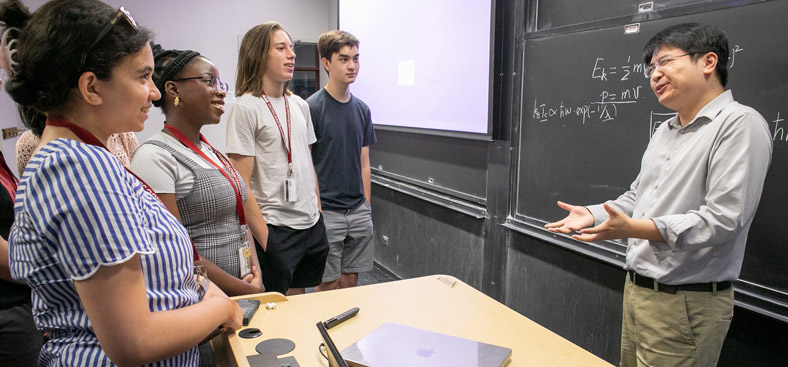Join us online this summer to explore new subjects, delve into a current interest with intense focus, and broaden your powers of perception while taking undergraduate courses at the University of Chicago. As a Summer Session student, you have the opportunity to enroll in undergraduate courses drawn from the regular curriculum of the College at the University of Chicago.

You will have access to the same exceptional educational resources available to all students during the regular academic year. All of our classes are taught by distinguished professors and experienced lecturers. In these smaller class settings, you will be able to receive personal attention from your professors and get to know other students in your class well.
Details
Courses can be three or five weeks long. Read each course listing carefully.
Each summer course, regardless of length, is the equivalent of a full, quarter-long (9 week) course, and meets for a least 30 contact hours.
Summer College will be taught remotely online. There is no hybrid or in-person option for these courses. Students cannot live in residence on campus if they enroll in an online course.
- Once you choose the course(s) for which you would like to apply, make a note of the department code and course number (ex. ANTH 21501).
- Make sure you don’t choose courses with conflicting schedules.
- Credits earned as a Summer College student will not count towards graduation requirements if you matriculate as an undergraduate at UChicago.
- See individual course descriptions for prerequisites, if any.
Eligibility: Current high school juniors and seniors.
| Session I (3 weeks) |
Session I (5 weeks) |
Session II (3 weeks) |
|
|---|---|---|---|
| Course Dates | June 10 - June 28 | June 10 - July 12 | July 1 - July 19 |
To search for courses based on your grade level and academic interest, check out the course finder.